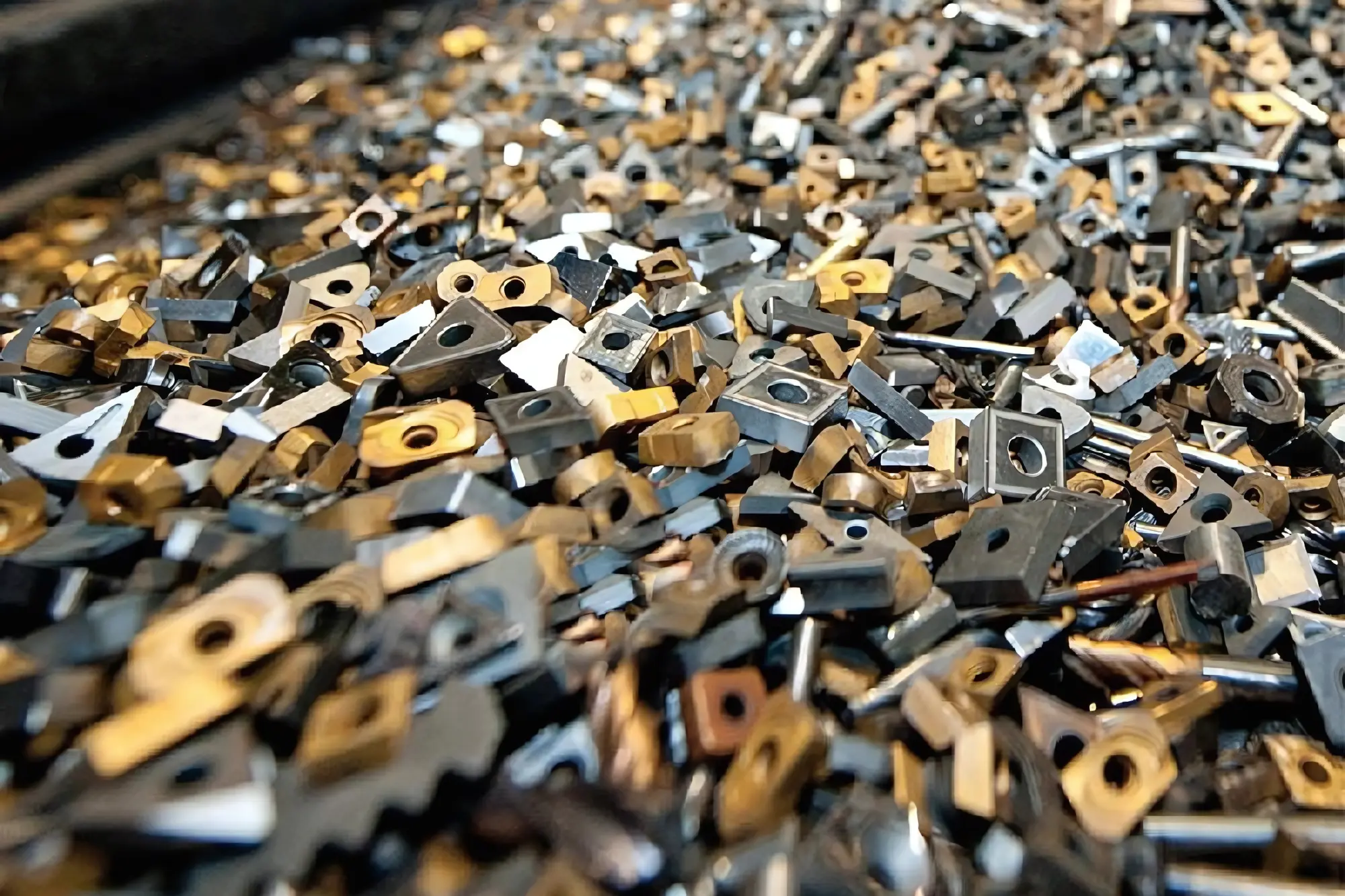

In the aerospace, energy, and heavy industries, tungsten carbide is a valuable and commonly used material known for its strength, durability, and resistance to wear. As demand for high-performance materials continues to rise, the recycling and sale of tungsten carbide scrap provide a unique opportunity for companies looking to optimize their operational costs while supporting sustainable practices.
Tungsten carbide is a composite material made from tungsten and carbon, also known as cemented carbide or hardmetal. This composite material is primarily made up of tungsten monocarbide (WC), which is nearly as hard as diamond. Other transition metal carbides like TiC, TaC, Cr3C2, and/or Mo2C are often added to hardmetals for specific industrial uses.
These brittle, refractory carbide phases are combined with a tough binder metal, typically cobalt or sometimes nickel or other metals from the iron group, to form cemented carbides. Cemented carbides are known for their high strength and hardness with moderate toughness, making them ideal for tools and components used in metal cutting, rock drilling, and wear resistance applications. It is a critical material in various industries for applications such as cutting tools, drilling equipment, and wear-resistant parts. As these tools wear down, they become viable for recycling, providing a secondary revenue stream through tungsten carbide scrap.
The value of tungsten carbide scrap is primarily tied to the global demand for tungsten, a rare metal, and the efficiency of carbide recycling. Companies with large amounts of carbide scrap can sell this material to recyclers, who in turn reprocess it for reuse in manufacturing.
Carbide scrap price is subject to market fluctuations based on several factors such as tungsten demand, production rates, and the availability of recycled materials. Currently, tungsten carbide scrap prices range based on purity and market conditions, making it essential for companies to keep up with real-time pricing to ensure they get the best value.
The tungsten scrap price fluctuates, largely driven by global supply and demand for tungsten itself. Factors such as geopolitical issues, mining output, and the industrial demand for tungsten-based products significantly impact the pricing trends.
Efficient carbide recycling can help aviation, energy, and other sectors offset costs by capitalizing on scrap metal that would otherwise go to waste. Proper sorting, handling, and selling of tungsten carbide scraps ensure that companies maximize the carbide scrap value they receive from recyclers.
Businesses often wonder, "Where to sell scrap carbide near me?" Numerous metal recycling facilities specialize in tungsten carbide scrap, providing convenient drop-off or pickup services. These recycling companies can handle large quantities of scrap carbide efficiently and pay competitive rates based on current tungsten carbide scrap metal prices.
For companies that perform heavy-duty machining, cutting, or drilling, recycling can also provide significant cost savings over time. Proper scrap management can reduce the tungsten cost per pound, making it a key consideration for any enterprise looking to improve its financial and environmental performance.
As of today, the tungsten carbide scrap price remains strong, driven by steady demand across the industrial sector. The carbide scrap price today is particularly attractive for companies who regularly discard carbide tools or parts. Given that tungsten scrap value is tied directly to the overall price of tungsten, understanding these trends can help businesses time their scrap sales for maximum profit.
When selling tungsten carbide scrap, businesses can expect competitive rates depending on the quantity and quality of the material they possess. The question of how much is scrap carbide worth ultimately depends on several market factors, including:
In 2024, the price of tungsten carbide scrap remains competitive, with businesses earning per pound depending on the factors mentioned above. Keeping track of the tungsten carbide scrap price today helps companies time their scrap sales strategically.